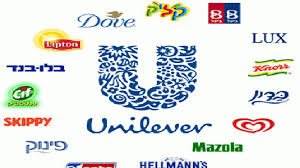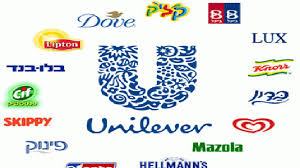
With the aim of giving itself more flexibility for mergers and acquisitions amid the economic and business hit due to the novel coronavirus pandemic, Unilever has proposed to set up a single company in Britain and to do away with its dual Anglo-Dutch legal structure.
The dual structure of the company has been in place since 1930. Two years ago the shareholders of the company had rejected a similar proposal to end the dual structure by shifting its headquarters to the Netherlands from London of the company that is the maker of Dove soap and Hellmann's mayonnaise.
"This post-COVID world is going to be a dynamic environment ... with opportunities for Unilever to create value for shareholders," Chief Executive Alan Jope told reporters.
Amidst a spade of revolt from the company’s shareholders in Britain, Unilever was forced to ultimately drop its 2018 proposal. Back in 2018 when its proposal was rejected, the company was still experiencing the impact of an unexpected $143 billion takeover approach from Kraft Heinz as well as the uncertainty over Britain's exit strategy from the European Union which was being negotiated between the UK and the EU.
Unilever's Danish Chairman Nils Andersen told reporters that the new plan is the "best tactical option".
The latest proposal was made after a close review for a period of 18 months and the process was hastened by a decision to de-merge its tea business, a review of which is still underway, said Unilever, the second biggest packaged food company of the world after Nestle.
A cross-border merger technique will be used to achieve the unification. Under the new proposal, every shareholder of Dutch Unilever NV will be given one share of British Unilever Plc against each share that they hold.
The plan also needs to be approved by 75 per cent of the British shareholders of the company as well as 50 per cent of the Dutch shareholders.
"It makes sense for the company to have as flexible an operational structure as possible, and this appears to achieve it without any obvious downside," Steve Clayton, UK fund manager of the Hargreaves Lansdown Select Fund range, which owns Unilever shares.
Slowing growth in emerging markets has put the Unilever's revenue under pressure. Tough competition in North America and travel restrictions because of the novel coronavirus pandemic has also impacted the sale of outdoor ice cream.
The recent sales performance and valuation of the company could make Unilever vulnerable to activist investors, said Barclays’ analyst Warren Ackerman. Unilever's forward price-to-earnings ratio was 18.2 while home and personal care rivals typically trade upwards of 20 times, he said.
No cost savings from the proposed move would be available to it because there will be no change operations, locations, activities or staffing in its British or Dutch business, the company said and added that it expects to remain listed on the Amsterdam and London stock exchanges.
(Source:www.livemint.com)
The dual structure of the company has been in place since 1930. Two years ago the shareholders of the company had rejected a similar proposal to end the dual structure by shifting its headquarters to the Netherlands from London of the company that is the maker of Dove soap and Hellmann's mayonnaise.
"This post-COVID world is going to be a dynamic environment ... with opportunities for Unilever to create value for shareholders," Chief Executive Alan Jope told reporters.
Amidst a spade of revolt from the company’s shareholders in Britain, Unilever was forced to ultimately drop its 2018 proposal. Back in 2018 when its proposal was rejected, the company was still experiencing the impact of an unexpected $143 billion takeover approach from Kraft Heinz as well as the uncertainty over Britain's exit strategy from the European Union which was being negotiated between the UK and the EU.
Unilever's Danish Chairman Nils Andersen told reporters that the new plan is the "best tactical option".
The latest proposal was made after a close review for a period of 18 months and the process was hastened by a decision to de-merge its tea business, a review of which is still underway, said Unilever, the second biggest packaged food company of the world after Nestle.
A cross-border merger technique will be used to achieve the unification. Under the new proposal, every shareholder of Dutch Unilever NV will be given one share of British Unilever Plc against each share that they hold.
The plan also needs to be approved by 75 per cent of the British shareholders of the company as well as 50 per cent of the Dutch shareholders.
"It makes sense for the company to have as flexible an operational structure as possible, and this appears to achieve it without any obvious downside," Steve Clayton, UK fund manager of the Hargreaves Lansdown Select Fund range, which owns Unilever shares.
Slowing growth in emerging markets has put the Unilever's revenue under pressure. Tough competition in North America and travel restrictions because of the novel coronavirus pandemic has also impacted the sale of outdoor ice cream.
The recent sales performance and valuation of the company could make Unilever vulnerable to activist investors, said Barclays’ analyst Warren Ackerman. Unilever's forward price-to-earnings ratio was 18.2 while home and personal care rivals typically trade upwards of 20 times, he said.
No cost savings from the proposed move would be available to it because there will be no change operations, locations, activities or staffing in its British or Dutch business, the company said and added that it expects to remain listed on the Amsterdam and London stock exchanges.
(Source:www.livemint.com)





